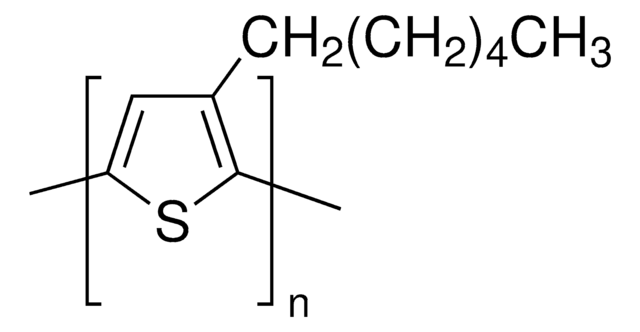GF69235926
Molybdenum
rod, 500mm, diameter 2.0mm, centerless ground, 99.9%
Sinônimo(s):
Molybdenum, MO007903
Faça loginpara ver os preços organizacionais e de contrato
About This Item
Fórmula empírica (Notação de Hill):
Mo
Número CAS:
Peso molecular:
95.94
Número MDL:
Código UNSPSC:
12141727
ID de substância PubChem:
NACRES:
NA.23
Produtos recomendados
Ensaio
99.9%
forma
rod
fabricante/nome comercial
Goodfellow 692-359-26
resistividade
5.0 μΩ-cm, 20°C
C × diâmetro
500 mm × 2.0 mm
pb
4612 °C (lit.)
pf
2617 °C (lit.)
densidade
10.3 g/mL at 25 °C (lit.)
cadeia de caracteres SMILES
[Mo]
InChI
1S/Mo
chave InChI
ZOKXTWBITQBERF-UHFFFAOYSA-N
Categorias relacionadas
Descrição geral
For updated SDS information please visit www.goodfellow.com.
Informações legais
Product of Goodfellow
Escolha uma das versões mais recentes:
Certificados de análise (COA)
Lot/Batch Number
Lamentamos, não temos COA para este produto disponíveis online no momento.
Se precisar de ajuda, entre em contato Atendimento ao cliente
Já possui este produto?
Encontre a documentação dos produtos que você adquiriu recentemente na biblioteca de documentos.
Bernd Masepohl et al.
Advances in experimental medicine and biology, 675, 49-70 (2010-06-10)
The vast majority of the purple nonsulfur photosynthetic bacteria are diazotrophs, but the details of the complex regulation of the nitrogen fixation process are well understood only for a few species. Here we review what is known of the well-studied
Ralf R Mendel et al.
Biochimica et biophysica acta, 1823(9), 1568-1579 (2012-03-01)
The transition element molybdenum (Mo) needs to be complexed by a special cofactor in order to gain catalytic activity. With the exception of bacterial Mo-nitrogenase, where Mo is a constituent of the FeMo-cofactor, Mo is bound to a pterin, thus
Angel Llamas et al.
Metallomics : integrated biometal science, 3(6), 578-590 (2011-05-31)
Molybdenum (Mo) is a very scarce element whose function is fundamental in living beings within the active site of Mo-oxidoreductases, playing key roles in the metabolism of N, S, purines, hormone biosynthesis, transformation of drugs and xenobiotics, etc. In eukaryotes
Yilin Hu et al.
Microbiology and molecular biology reviews : MMBR, 75(4), 664-677 (2011-12-01)
Nitrogenase catalyzes a key step in the global nitrogen cycle, the nucleotide-dependent reduction of atmospheric dinitrogen to bioavailable ammonia. There is a substantial amount of interest in elucidating the biosynthetic mechanisms of the FeMoco and the P-cluster of nitrogenase, because
Manuel Tejada-Jiménez et al.
Metallomics : integrated biometal science, 5(9), 1191-1203 (2013-06-27)
The viability of plants relies on molybdenum, which after binding to the organic moiety of molybdopterin forms the molybdenum cofactor (Moco) and acquires remarkable redox properties. Moco is in the active site of critical molybdoenzymes, which use to work as
Nossa equipe de cientistas tem experiência em todas as áreas de pesquisa, incluindo Life Sciences, ciência de materiais, síntese química, cromatografia, química analítica e muitas outras.
Entre em contato com a assistência técnica